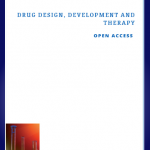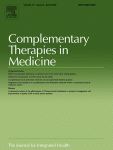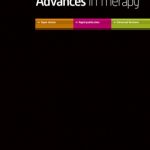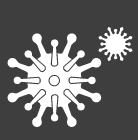Una fotografia della realtà omeopatica europea per voce del suo rappresentante più autorevole.
Intervista a Ton Nicolai
Il Presidente dell'ECH a colloquio con la SIOMI
President, what exactly ECH is?
The ECH, the European Committee for Homeopathy, is the European association for homeopathic medical doctors as well as other statutorily regulated health professionals in the field of homeopathy, such as veterinary surgeons, dentists, pharmacists, and midwives.
When ECH has been founded and by whom?
In 1991 a group of delegates from European homeopathic doctors associations who worked in the LMHI (the world association of homeopathic doctors) decided to collaborate on European matters. At that time the European Union was preparing regulations for homeopathic medicines and homeopathic doctors . The ECH started to work on a common standard for a basic training course and gradually extended their activities to other areas, such as documentation, research and politics.
What are its finality?
The aim of the ECH is the promotion of homeopathy as a specific clinical method used by statutorily recognised health professionals, i.e. medical doctors, veterinary surgeons, dentists, and pharmacists, each within their own bounds of competence. Our final goal is the recognition of homeopathy as a medical specialty. The ECHs ultimate aim is for homeopathy to be integrated into the existing European health care system, as a fully-fledged branch of medicine with comparably high standards as those which exist in conventional medicine. This implies that it needs to (a) have University chairs, (b) be introduced into the undergraduate medical, veterinary, dental or pharmacy curriculum, (c) be introduced into the specific training for General Medical Practice, and (d) be recognised as a formal qualification in specialised medicine.
What are the main results obtained by this Association?
We have built up our association and it now unites 38 homeopathic doctors associations in 22 European countries, in other words we represent more than 95% of all homeopathic doctors. The ECH is a member of the Health Policy Forum, an advisory body to the European Commission, it has contact with the European Parliament, European authorities involved in the regulation of homeopathic medicines, etc. We have drawn up educational guidelines for homeopathic medical doctors and have recently started accrediting homeopathic teaching centres across Europe. We have drawn up a minimum training standard for pharmacists, guidelines for medicine provings, a homeopathic thesaurus in 4 languages, etc. More information can be found at our website, www.homeopathyeurope.org.
Can you explain, in few words, the state of the art of the European homeopathic condition? Do you think that homeo physicians are excluded, more than tolerated or welcomed? And what are the main differences among the different European actual facts?
The situation for homeopathy (and other CAM therapies) varies from country to country. Homeopathy is legally recognised as a specific branch of medicine by the national governments of Belgium, Bulgaria, Hungary, Lithuania, Portugal, Romania, Russia and the United Kingdom. The French national medical association favours a similar development in France.
In Austria, Germany and Switzerland medical doctors, after having successfully taken a training course in conformity with the ECH training standards, obtain an additional qualication recognised by the national medical association. In France, Italy, Latvia and Serbia the national medical associations have recognised homeopathy as a medical method in its own right. Unfortunately there are other countries where conventional medical doctors are still opposed to homeopathy, in Sweden and Slovenia doctors may even be suspended when they practise homeopathy. In Austria, France, Germany, Italy and Spain there are several homeopathic doctors working at the outpatients department of mainstream hospitals. As you can see, the situation is highly diverse.
Do you know and what do you think about SIOMI work in Italy? Do you think a good idea to make conventional and homeopathic physicians working together?
SIOMI deserves credit for bridging the gap between the conventional medical world and the world of Complementary and Alternative Medicine (CAM), resulting in a positive position of FNOMCeO towards CAM. Homeopathy should be integrated into the medical system. Doctors need to work together to provide different medical models for our patients. Some medical problems can be better solved by conventional medicine, other problems by homeopathy or another CAM therapy.
In Italy we are living an endless competition between the homeopathic “unicism” and the “pluralism”? What is the ECH position on this problem?
There is only one homeopathy and most practitioners agree on the basic principles, but various approaches have always existed in homeopathy. Homeopathy is a difficult method to master. You can see beautiful cures (almost miracles) when a patient has taken one single, well-chosen homeopathic medicine, so I can understand that if doctors have had such an experience they will seek for similar solutions in other patients. But if patients have very complex chronic diseases that are difficult to manage, we are still searching for the best approach. Provided that all homeopathic doctors, including unicists and pluralists, keep the dialogue, we will be able to further develop our tools and treat more patients successfully.
And what is the idea of ECH about two other important problems that in Italy are fueling a lot of controversies: the classification of homeopathy as “complementary” more than “unconventional” (trying to underline the approaching of homeopathic physicians to academic world) and the problem of the exact number of hours featuring a course of homeopathy?
Homeopathy can be used, in some cases, as a complement to conventional medicine and, in other cases, as an alternative to it. Therefore it is usually called a CAM (Complementary and Alternative Medicine) therapy. Some people prefer using the term complementary to avoid antagonisms with conventional medicine. If you use the term unconventional you emphasise what it is NOT, rather than what it IS. Personally I would prefer the term holistic because homeopathy, as many other CAM therapies, looks at the patient as a whole instead of a diseased body part.
To become a good homeopathic doctor you probably need at least three years of full-time training and education (after your medical training/education), more or less as a medical specialist. Such a training course exists in Brazil but not in Europe at the moment. But of course General Practitioners having had some basic homeopathic training can help patients with some simple medical conditions in the same way as a General Practitioner can do some simple surgery although he is not a surgeon. Therefore we need courses at several levels with different levels of competence. Personally I am very much in favour of the model of the Faculty of Homeopathy in the United Kingdom that has an introductory level, an intermediate level and a specialist level. The learning outcomes, homeopathic knowledge and profile of each level are described in a detailed way, which is, in fact, much more important than the number of hours alone.
Still, if you need an idea of the number of hours, the Faculty model requires 150 dedicated hours of teaching and study at the introductory level, 300 hours of formal tuition and clinical learning experience at the intermediate level, and two years full-time supervised clinical experience at the specialist level. The current ECH Medical Homeopathic Education standards prescribe 350 hours as a minimum standard for a homeopathic training course for doctors, but the ECH has not yet formulated the requirements of an introductory level course.
As you can know, what is the University proposal for learning homeopathy in Europe? And, always facing the problem of teaching homeopathy, what do you think about the relationship that must be kept between University and private teaching courses?
Homeopathy is making some progress at universities. There is a senior lecturer in homeopathy at the University of Liverpool (United Kingdom) and a chair for complementary and alternative medicine (CAM) including homeopathy at the University of Bern (Switzerland). Familiarisation with homeopathy as a compulsory part of the medical undergraduate curriculum exists at all universities in Germany and the United Kingdom and is starting in Belgium. At some universities in Austria, Belgium, the Netherlands and Spain students can choose homeopathy as an optional subject. Several universities in France, Poland and Spain provide postgraduate homeopathic training courses, leading to a university diploma.
In my opinion, in the long run homeopathy should be taught at universities by experienced homeopathic doctors, but only if universities are really open to what homeopathy can offer to public health in Europe. Only on the basis of mutual respect between mainstream medicine and homeopathy. Existing homeopathic teaching centres should collaborate with universities and, if the time is ripe, eventually be a part of the universities. Ideally, homeopathy should be taught in familiarization courses in the undergraduate curriculum, in the education of General Practitioners and as a medical specialty. But that may still take a long time.
The last question, about the future of homeopathy: are you optimistic or pessimistic?
Optimistic. The demand among the general public for CAM in general and homeopathy in particular is still growing and will continue to grow. More and more people have had the experience that conventional medicine, although it has brought much good, has its limitations especially in chronic diseases. And that conventional prescription drugs can have serious risks. Homeopathy, by contrast, is safe and patients are very satisfied with the therapeutic results.
Fonte: Gino Santini







